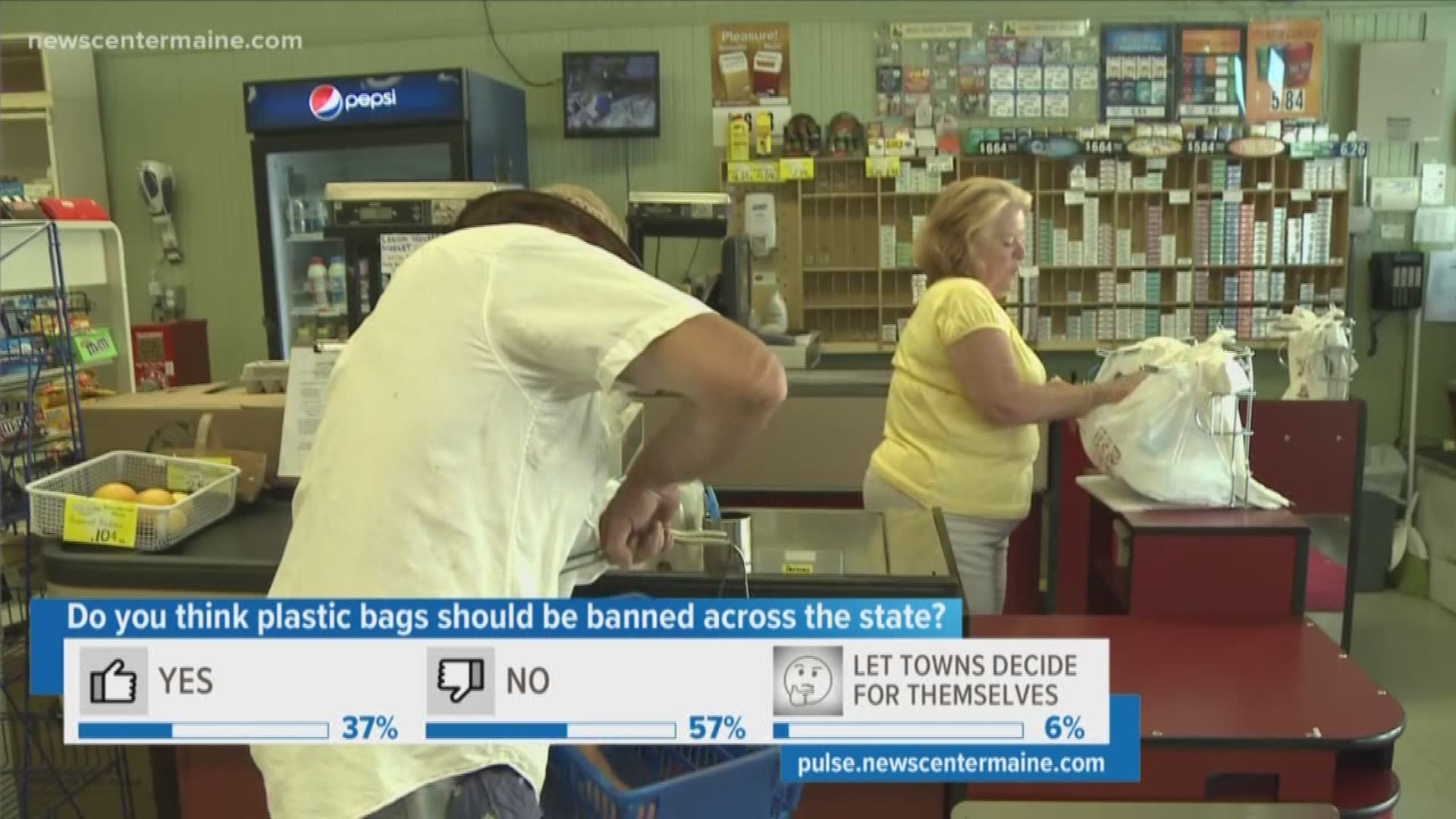AUGUSTA, Maine — The Maine Senate has moved the state a step closer to a ban on single-use plastic bags at grocery check-out lines.
With a 24-9 vote Thursday, the Senate sent the bill to Democratic Gov. Janet Mills, who hasn't indicated her personal stance, but the bill is backed by Maine's environmental agency.
If Mills approves the bill, Maine could become the third state in the nation with a ban. California and New York have also prohibited the use of plastic bags, while all of Hawaii's counties have passed such a ban, according to the National Conference of State Legislatures. Maine's bill comes as at least 20 of its municipalities and legislatures across New England — such as Massachusetts and Vermont — have approved bans.
If approved, the Maine ban would take effect next year.
Mills has pushed for action on climate change and plastic pollution in her first months, and recently signed Maine's first-in-the-nation ban on single-use food and drink foam containers.
Democratic Sen. Brownie Carson called the Senate's passage of the bill a "win" and the result of hours of negotiation with industry groups representing retailers.
Such retail groups — weary of varying bans in dozens of towns across New England —have supported Maine's bill to allow stores to charge at least 5 cents for recyclable paper or reusable plastic bags. Allowed plastic bags would have to withstand 75 repeated uses and be made from plastic of at least 4 mils thick.
The fee wouldn't apply to restaurants and stores with relatively few food sales, or to consumers who bring their own single-use plastic bags or use governmental food benefits. Maine's bill also has carve-outs for plastic bags used for newspapers, dry cleaning or loose produce.
The amended bill also allows retailers to offer single-use plastic bags to customers to bag products away from the check-out line, but only if such stores have receptacles to recycle them.
Meanwhile, there's growing momentum particularly in New England to pass similar bills. Vermont is poised to implement what advocates call one of the most comprehensive bans in the country on single-use plastic bags and other measures designed to reduce plastic pollution.
When thrown out or blown away, the bags can wind up in landfills, lakes and oceans, where marine animals such as turtles can mistake them for jellyfish. Plastic bags are commonly made from low-density polyethylene and can end up as floating marine debris that can sink and break up into smaller pieces, according to the Environmental Protection Agency.
Still, industry groups representing plastic bag manufacturers claim that such bans could lead to thicker, reusable bags in landfills.
Maine's bill has also drawn pushback from the Surfrider Foundation, which is leading efforts nationwide to pass plastic bag laws.
Melissa Gates, the foundation's northeast regional manager, has called for lawmakers to increase the paper bag fee to 25 cents and prevent thicker film plastic bags from qualifying as "reusable."
The Maine House previously voted 91-52 in favor of the bill. The governor has 10 days to veto it, sign it or let it become law. If the ban becomes law, it would be effective April 22, 2020.

